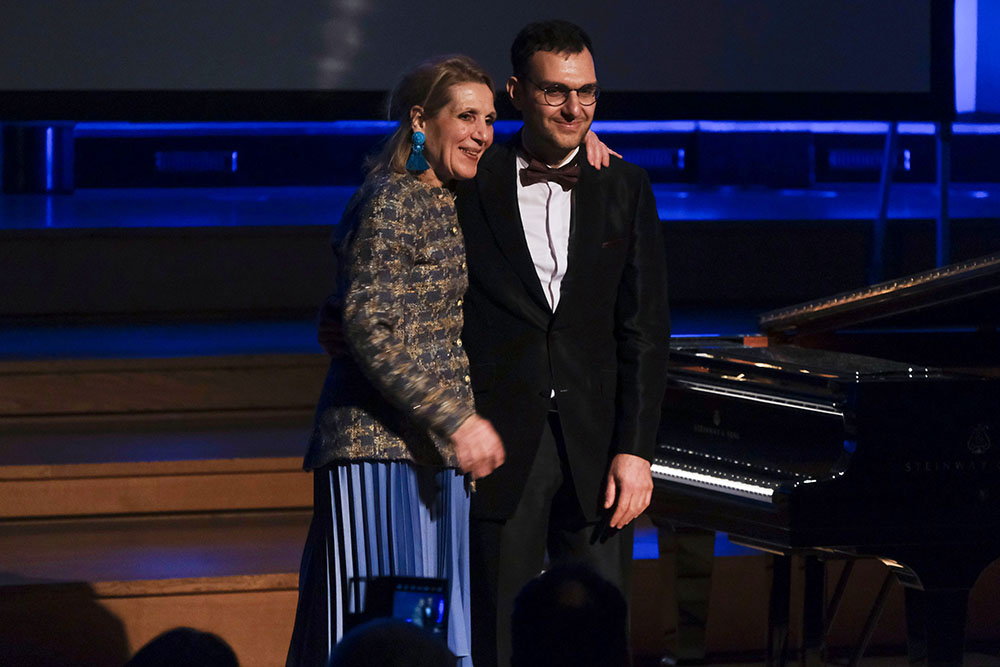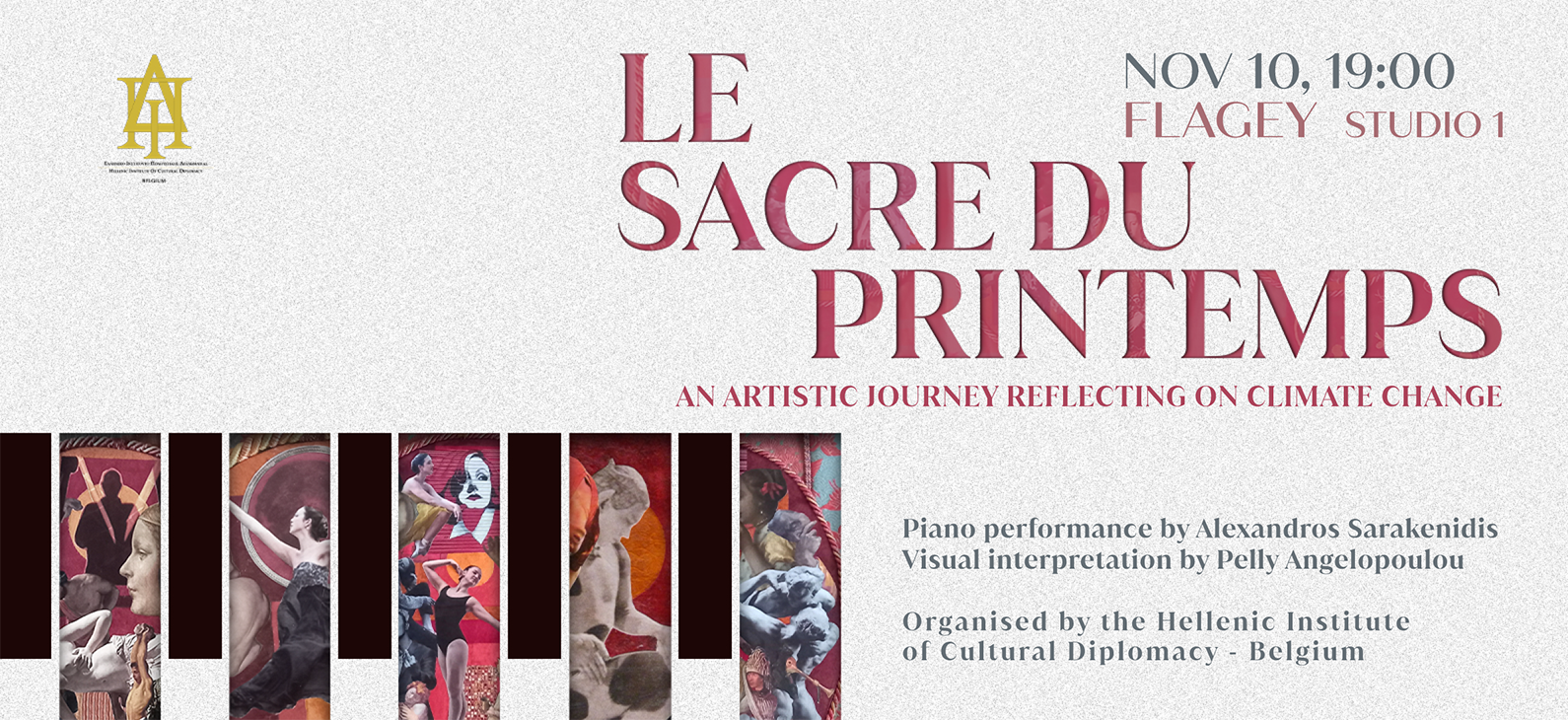
Introduction
Cultural Diplomacy is a recent science, but a practice as old as the relations among human societies, since the beginning of their existence. Rooted in the period of the “Cold War” during the second half of the 20th century, it came especially after the fall of the Berlin Wall to offer alternative solutions for the usual diplomatic attitude, as the exercise of “soft power”. According to the Institute for Cultural Diplomacy (ICD), it aims ultimately at the creation and maintenance of “peace and stability in the world through intercultural relations” (see: Karl-Erik Norman, Definitions, Ideas, Visions and Challenges for Cultural Diplomacy, 3 Jan. 2013: https://www.e-ir.info/2013/01/03/definitions-ideas-visions-and-challenges-for-cultural-diplomacy/). Its definitions are multiple and complex. I shall just take up here the description put forward by Mr. Peter D. Kapsaskis on the site of the Hellenic Institute of Cultural Diplomacy (HICD):
“Cultural diplomacy contributes to creating a foundation of trust between states and helps to reach political, economic and military agreements. It highlights the values of culture and creates relations of emotional closeness with foreign peoples, which go beyond the changes of governments. But what distinguishes it from traditional diplomacy is that it can persuade and influence citizens of other states through the arts and sciences, language and religion, which can not be achieved through traditional diplomatic functions. Cultural diplomacy is an aspect of diplomacy that has so far not been used adequately in building better diplomatic relations between states and although it could serve as a bridge connecting states by improving relations between them, it has been underestimated and in many cases neglected”.
(https://helleniculturaldiplomacy.com/en/cultural-diplomacy/)
The relations between Philosophy, my personal main area of specialization, and Cultural Diplomacy are not yet explored. Some partial approaches were recently attempted by eminent scholars coming from different countries. For example, in 2017, the Institute for Cultural Diplomacy organized in Berlin a conference on “Philosophical Cultural Diplomacy”, where interesting ideas were expressed and discussed:
In the present paper, I shall try to define for the first time, as far as I know, some fundamental ways in which Philosophy and Cultural Diplomacy are connected, in my opinion. Thus, I would like to propose some original orientations for eventual future interdisciplinary reflection, research and practice.
I. Philosophy of Cultural Diplomacy: a theoretical approach
Philosophy comes in general to provide the theoretical approach of a science. Rational thought tries to clarify and define the origins, the causes, the aims, the characteristics, the methods as well as the different branches of this particular part of the human knowledge. It may also bring crucial assistance in the creation of the scientific vocabulary necessarily attached to it.
The Institute for Cultural Diplomacy (ICD) was founded in the USA in 1999 and its European branch was established in Berlin in 2004. It is indicative that the description of its ideological basis is presented in its site under the title: “Philosophy”:
“The ICD understands that in an increasingly globalized world, in which people are able to travel and exchange information faster than ever before, the globe is becoming more integrated and there is a growing interdependency between nations, communities and individuals.
As a result, successful intercultural interaction will undoubtedly become a major challenge for international relations in the 21st century.
In this regard, the ICD believes that inter- and intra- cultural relations can be strengthened and maintained through constant and on-going dialogue and exchange. These, in turn, lead to a better understanding and greater trust between nations and communities, prevent misunderstanding, improve communication and cooperation and help to reduce the likelihood of socio-cultural conflicts and disputes”.
(https://www.culturaldiplomacy.org/index.php?en_abouticd)
Though Philosophy of Culture exists for a long time, as well as Political Philosophy and Philosophical Anthropology, the domain of Cultural Diplomacy is too recent and therefore the philosophical reflection on this subject is actually open to be developed, with the perspective of many precious new ideas to create, I think.
II. Philosophy as a practice of Cultural Diplomacy
The study of Philosophy itself implies the acquaintance with concepts and methods coming from various thinkers – belonging to different cultural environments of the whole world, from the Antiquity to our times –, their understanding and their critical approach, through the filter of every scholar’s cultural influences and personal choices. Therefore it cultivates already a way of thinking in accordance with the principles and the objectives of Cultural Diplomacy.
In addition, Philosophy is a science exercised at a global level. This implies that, in practice, the students, the researchers and the teachers in Philosophy spend usually various periods of time in other countries and institutions. This attitude was current for many centuries and even more nowadays, as people may profit of numerous projects of international exchanges. They also participate in international conferences, research and editorial activities, reviews….
The International Federation of Philosophical Societies (FISP) is a global organisation uniting all national and international philosophical associations (focused on particular themes). It sponsors the World Congress of Philosophy and the International Philosophy Olympiad every five years, which constitute vast meetings of thousands of philosophers from all countries.
The UNESCO is also supporting international philosophical co-operations, as they constitute a part of the world’s educational accomplishments. To cite only one example: the EON project (Eleatic Ontology: Origin and Reception), in which I participate as a member of the editorial committee, is a multi-volume work, uniting articles of specialists from all continents exploring the development and influence of Eleatic ontology in every period of the History of Philosophy.
Seen from that angle, Philosophy becomes evidently a privileged way to practice Cultural Diplomacy.
III. Philosophy as an education for Cultural Diplomacy
Philosophy develops per excellence independent questioning and encourages the liberty of thought, the originality and the creativity of every person.
It cultivates critical thinking, the clear and well-structured expression of rational arguments, orally and in a written text.
In parallel, philosophy educates in the profound understanding of different points of view, by the study of various theories, as mentioned above. Thus, it presupposes the capacity of listening to the Other, the respect for the different opinions and a cooperative attitude in view of realising a constructive dialogue.
Precision, rigorous attention to details, analytical skills and capacities for a larger, synthetic overview, without overlooking the crucial differences among all positions, are also necessary for a successful philosophical activity.
Therefore, I believe that Philosophy may be considered as an excellent education for Cultural Diplomacy and it could be a precious part of the curriculum for the persons who wish to study theoretically, as well as to integrate concretely this domain.
Conclusions
The present paper is of course only a first and elementary approach of the multiple relations between Philosophy and Cultural Diplomacy. I hope however that it shed some light on the actuality of this rich subject and the high interest of its future developments, in theory and in practice.
Dr. Aikaterini Lefka
Ambassador of the Hellenic Institute
of Cultural Diplomacy in Belgium
- Tags:
- Aikaterini Lefka
- Research



